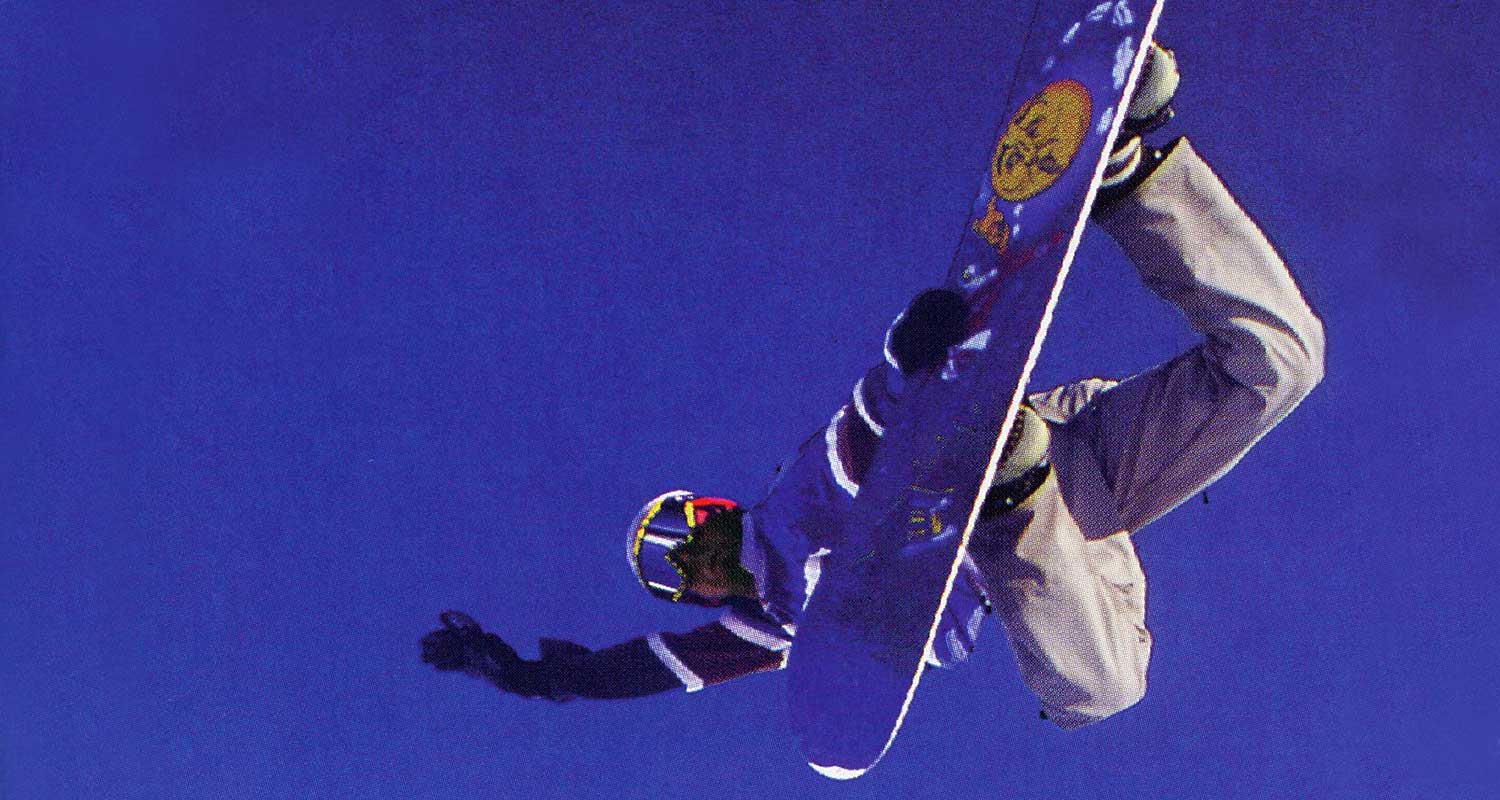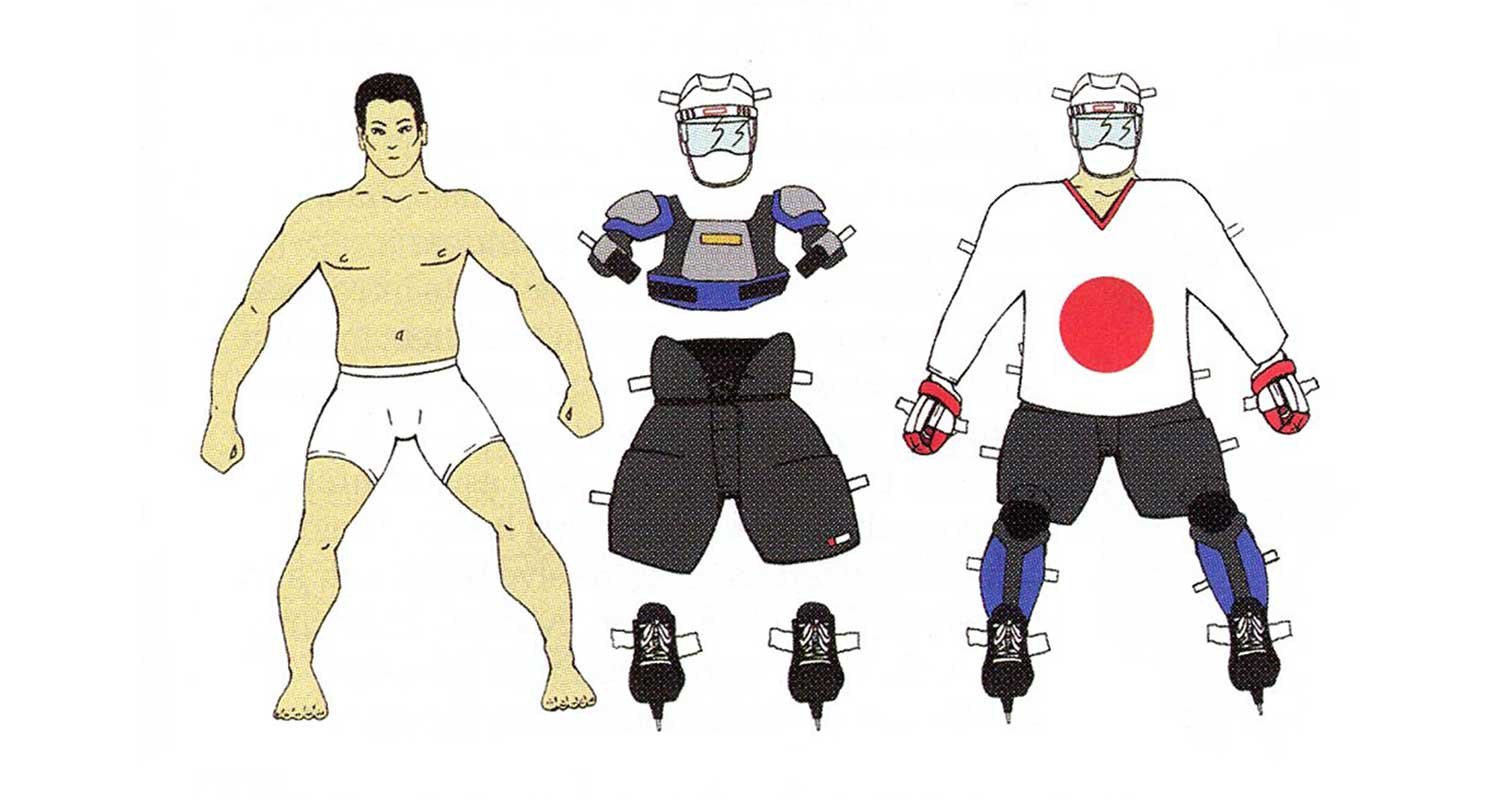After eight years of snowboarding, Lori Glazier could hardly believe her ears: she had one day to pack before being whisked away to the 1998 Winter Olympic Games in Nagano, Japan. After qualifying at Calgary Olympic Park, this exciting news was a welcome release. Glazier and her fellow National Team members had anxiously awaited the delayed announcement telling them Canada had won four seats in the Women’s Halfpipe competition. Chosen to represent Canada in the first Olympics to include snowboarding, Glazier saw a dream unfolding before her.
As fans, family and friends gathered at the Calgary Airport for the official send-off, the realization that she was actually going to the Olympics finally hit Glazier. “To be able to go represent your country can be the biggest thing to deal with,” she says. Thoughts wrestled through her mind. She wanted to do handsprings, but she also felt overwhelming pressure. The long flight carrying her from the coast mountains of B.C. to Mt. Fuji in Japan gave her time to prepare herself for the unpredictable days to come.
Fellow Whistler local and Canadian National teammate Derek Heidt also qualified to compete in the Men’s Halfpipe alongside Glazier. Heidt, as a Burton Snowboards Pro Team member, had traveled to Japan many times before. He sees the Olympics as just another competition among many. “It’s not like bob-sledding, where the Olympics is the only competition. We have other contests that carry more importance for the sport.” Yet Heidt believes the Olympics are unique from other competitions because of their massive size and the variety of competitors who take part.
The Japan Experience
For Glazier, walking around the track in the opening ceremonies with competitors from different events and countries was the pinnacle of the games. “The experience of being in the Olympics was unforgettable and irreplaceable,” she says. Glazier took advantage of the opportunity to support fellow Olympic athletes. She was in the crowd with Ross Rebagliati when Canadian speed skater Catriona LeMay-Doan won the gold medal in the 500m competition. From the Canadian Athletes room, she watched Olympic hockey with all-stars Wayne Gretzky and Rob Zamuner. Glazier and her teammates couldn’t help sharing their enthusiasm with the people of Nagano.
And the excitement was mutual. In the traditional Japanese code of hospitality, athletes didn’t lay a finger on any luggage from Canada to Japan.
Japanese hosts greeted competitors with numerous gifts (kimonos, handmade crafts and food) upon arrival at their hotel rooms. They supplied the snowboarders with translators and transportation to events. Glazier describes the Japanese as “incredible, friendly and happy to go out of their way for Canadians who are always welcome.”
When athletes traveled to Olympic venues, Japanese women crowded the doorways of hotels and restricted areas hoping for a chance to shake a hand or touch the athletes. Glazier recalls coaxing two shy young girls to pose with her for a picture. “They were so stoked. There was such respect for athletes there, it was crazy!” Thousands of people watched the halfpipe competitions. As competitors rode the chair lift up to the position of descent, fans screamed their names. Foreign voices rang out to Glazier: “Wori! Wori!” “They couldn’t say my name properly,” she says laughing. This support so far from home inspired the riders.
Yet competing in the event was an overwhelming experience for Glazier. The halfpipe was in excellent condition, but she couldn’t feel her knees while she was riding. Tears were frequent and “Tears Lori,” as Glazier describes herself, sought refuge from the eyes watching her. In the end, she placed 18th out of 27 female snowboarders in the competition. Since Glazier usually places in the top ten at international competitions, she describes her Olympic placement as disappointing. However, she remembers her Nagano experience as fun, in spite of all the stress.
Team Canada Caught In A Scandal
This stress was caused, in part, by the scandal that broke out when Canadian snowboarder Ross Rebagliati tested positive for traces of marijuana. Although the Japanese authorities allowed Rebagliati to keep his gold medal, all snowboarders felt the repercussions of the incident. During the resulting media frenzy, Canadian snowboarders reported back to their rooms for accreditation and security checks, and their rooms were searched by police and dogs.
Heidt agrees that the Rebagliati scandal dampened the spirits of Canadian snowboarders. The teams adopted a low profile to avoid media questions, and jackets and hats bearing Canadian emblems were no longer worn. The Canadian Olympic Snowboard Team left Japan before the closing ceremonies, disappointed they were asked not to participate. Told their presence would disturb other athletes, they felt wrongfully excluded from the ceremonies. Nevertheless, Heidt says support from their young fans stayed strong. “The kids don’t mind, but the parents probably care about the whole Ross thing.”
Riding In Japan
Despite the negative publicity, snowboarding remains as popular with the Japanese as ever. Young Japanese snowboarders currently favour the Burton Snowboards Pro Team, which has a strong presence in Japan year round. During the off-season, they execute demos at indoor ski resorts and ride on halfpipes made of concrete covered with Astroturf. Indoor ski resorts and competitions are common in Japan, and the trend is spreading throughout the international snowboard community. But if you travel to Japan to snowboard, stay on the runs. Heidt’s advice is to fight the temptation to make fresh tracks in untouched powder between the sparsely patterned trees. “The Japanese believe spirits live in the trees and will get mad if they are disturbed.” Hence, tree-riding is banned at Japanese resorts. Heidt speaks from experience. If you are caught in the trees, expect to get yelled at over a megaphone for the whole mountain to hear: “Get back on the run!”
Many Japanese snowboarders make their way to Canada to experience Whistler’s world-famous powder firsthand. And since Vancouver and Whistler recently won the Canadian bid to pursue the 2010 Winter Olympics, Glazier and Heidt may get the opportunity to return the hospitality extended to them in Nagano.











